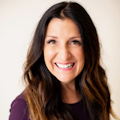Is there a place for a higher power in the operatory?
Opinion/editorial
An unwritten rule in society is to not talk about controversial topics such as politics and religion in certain situations, such as at the office or a party. This is doubly true in the workplace because we, as professionals, do not want to offend our patients or rock the boat with our coworkers. It is especially important in dentistry that we make everyone as comfortable as possible, so we've been taught to never talk about our personal lives or opinions, which makes me chuckle a bit considering the dirty laundry that flows so freely on social media.
These subjects can be polarizing, so keeping our personal and professional lives separate can seem like good practice, but I argue that taking on the controversial topic of religion in the operatory can be beneficial and warranted in some situations.
After being in practice for 30 years, trying to adapt to our new model in the clinical setting that decreases chair time is a huge struggle. We all know how long a visit takes: from medical history reviews, blood pressure and pulse recording, intraoral photographs, radiographs, periodontal charting, recession, bleeding points, oral cancer screenings, health and dental education, scaling, polishing, fluoride … I could go on and on. Consultants like to call it "proper time management,” but I say it defines the phrase "The struggle is real." A consultant once told me I needed to tweak my talking time with patients.
But hold up! One size does not fit all. It's not an easy tango, but there is a happy medium between being a professional and building relationships with your patients, and those relationships are so very important, both to us and to them. Open-ended questioning and motivational interviewing not only complete quality clinical care, but also build solid, personal relationships and gain the trust of patients authentically. Can a discussion about higher powers be included? Can we as providers consult with our own higher power in the office setting? My answer to this is yes, absolutely.
I pray or have a running dialogue with God when I scale, take x-rays, wait for the doctor to do an exam, and several other times during the day. Honestly, there are times my prayers might be self-serving or snarky, but I, like all of us, am a work in progress. I pray every single day before I seat my first patient that God will guide my hands and lead my words to give the best care I possibly can in an atmosphere of comfort and caring. It means reading a situation to the best of my ability, sharing when it's prudent, and listening and praying when situations warrant.
I worked in one practice in Oklahoma that prayed every morning during our huddle. Did it fix everything? Make our days go seamlessly? Of course not, but that morning moment started all of us out with a sense of peace and grace. We had a prayer box for patients to put in their requests and we honored every single one of them during our morning meetings. The dentist who owned that practice was a faith-filled woman, and God seemed to organically become woven into many conversations that helped not only us but our patients. Religion was not something that was forced on our patients, but it was there for those who needed it, and was greatly appreciated by those who did.
Years ago, I had a new mother come in who was quite withdrawn. As I proceeded to ask open-ended questions and encourage her to share, she slowly opened up about her current struggle managing a new baby and keeping her life together. As I commenced with my hygiene responsibilities, I felt compelled to share a personal story. I delivered my son six days before 9/11, and that event devastated me. I was up in the middle of the night, every night, almost all night, and the only thing on TV, the papers, virtually everywhere, was the horrendous events of that day, which are difficult to think about even now. I was sleep-deprived and wracked with guilt at bringing a baby into this awful world (so I thought at the time), and it led me to undiagnosed postpartum depression. I waited so long for my perfect son; how could I be depressed? I told my patient this story and then told her about the divine intervention that followed.
A friend of a friend, Susan, showed up at my door one day. This woman, a virtual stranger, introduced herself and told me not to worry; she told me to take a long, hot shower and she would take care of my son for a few minutes. I deliriously handed my precious cargo to a woman I didn't even know, stepped into the shower, and proceeded to cry for God knows how long. I shared with my patient that I, for one, understood deeply the confusing, startling, exhausting peril some new moms feel and that she was not alone.
When the appointment was finished, I wrote my number down and told her I would love to be a helpful stranger if that is what she needed. She cried, I cried, and I realized that what happened to me a decade before was not for nothing. It may not have seemed like the perfect setting to share my story, but it was the perfect time and the perfect person to share it with. God was with me and that patient long ago in that operatory, and then later when her husband came for his appointment. He asked if I was the hygienist whom his wife had seen a month before. I responded yes, and before I could ask about her, tears came to his eyes and he thanked me. She shared my story with him, and in turn, it helped him to help her. You see, he had no idea how hard she was struggling, and by sharing with her that she was not alone, it helped her to be open with him about her pain.
I will never insult or upset other faiths. I respect my peers, patients, and family members in all their beliefs. I am in no way suggesting making your operatory a pulpit that you preach from. This is simply a plan to care for people differently, and there is room to include people of all beliefs. I will continue to listen, share, and pray when I feel it necessary and appropriate as a way to keep humanity in our new, complex business model in the modern age of dentistry. We all know our patients are so much more than just teeth, and incorporating religion in the operatory can help them feel that.
Anne O. Rice, BS, RDH, graduated from Wichita State University, and then continued her studies and earned a bachelor’s degree in oral health promotion. She is a graduate of the BaleDoneen Preceptorship course for cardiovascular disease prevention for health-care practitioners. After almost 30 years of clinical care, she founded Oral Systemic Seminars and is passionate about educating the community on modifiable risk factors for dementia and its relationship to dentistry. Please reach out to Anne at www.anneorice.com.
About the Author

Anne O. Rice, BS, RDH, CDP, FAAOSH
Anne O. Rice, BS, RDH, CDP, FAAOSH, founded Oral Systemic Seminars after almost 30 years of clinical practice and is passionate about educating the community on modifiable risk factors for dementia and their relationship to dentistry. Anne is a certified dementia practitioner, a longevity specialist, a fellow with AAOSH, and has consulted for Weill Cornell Alzheimer’s Prevention Clinic, FAU, and Atria Institute. Reach out to Anne at anneorice.com.
Updated April 5, 2024
